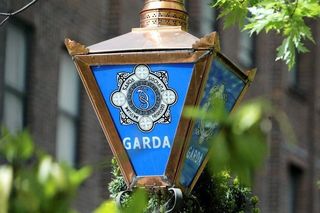Well-being report into Dublin school finds nearly quarter of staff in ‘high distress’, suffering ‘low quality of life’
Well-being report into Dublin school finds nearly quarter of staff in ‘high distress’ and suffering ‘low quality of life’
A well-being report of teachers at a Dublin school at the centre of a staff-management workplace crisis has found that nearly a quarter are in “high distress” and suffering from a “low quality of life.”
A psychological risk management survey at the 676-pupil all-boys school Templeogue College found 24pc of staff surveyed reported being in high distress, which is nearly double the national average for all workplaces of 13pc.
The report, published in February, comes as teachers in the school last month wrote a letter through the Association of Secondary Teachers Ireland (ASTI) citing a “toxic and unsafe workplace in crisis.”
The letter, which is signed by the ASTI membership of teachers at the school, following a meeting where more than 20 agreed to send it, is addressed to the Spiritan Educational Trust Executive Officer Dr Nicholas Cuddihy.
It stresses “ongoing and unresolved governance issues” at the non-fee-paying south Dublin secondary school.
The letter addresses a number of questions to the Spiritans Educational Trust, who supervise the order’s schools including Templeogue College, regarding several grievances held by staff.
It states the membership’s “utmost concern” regarding the resignation of a Unitary Manager who resigned on February 6 after just four months.
The appointment of the Unitary Manager to Templeogue College was made in September last year after four members from the board of management stepped down from their roles.
It came after a Department of Education inspection report found that a significant number of teachers at Templeogue College had been dissatisfied with the leadership of the school.
The letter asks why the Unitary Manager resigned and expresses “surprise and deep disappointment” at the departure considering the wealth of education management and governance experience they brought to the school through their role.
It also refers to multiple correspondence to patrons from staff members citing staff safety and a toxic workplace that they say “remain ignored and unaddressed.”
It described the findings in the well-being or Health and Safety Authority Work Positive survey that found 24pc of staff are suffering from distress as “alarming” adding that the report cites “many redline issues pertaining to management that require urgent attention in our workplace.”
The letter from teachers through the ASTI membership continued to relay concerns and to add context as to why they regard Templeogue College as an “unsafe and toxic environment” and one they constitute a “workplace in crisis.”
It also addresses how the school has been at the centre of WRC proceedings which staff have expressed concern about.
It stresses an alarming staff turnover with multiple staff resignations including teachers and administrators, which it says “testify to the unsafe and toxic environment that precipitated their exigent departure.”
It states the dissolution of the school’s Board of Management (which has not yet been replaced) as well as multiple collective grievances signed by staff.
It alludes to a Whole School Evaluation/Management, Leadership & Learning (WSE-MLL) report last year stating that a significant number of staff were “disaffected with senior management.”
Following the list of issues, the letter states that it “cannot be understated how these inalienable facts and events have now culminated in the sudden and alarming resignation of the Unitary Manager.”
They said staff felt this individual “finally offered the possibility of oversight in the form of fair, transparent and accountable leadership and governance.”
“We hold that the patrons (Spiritan Educational Trust) cannot any longer underestimate and ignore the gravity of these issues, a highlighting of which, to reiterate, clearly indicates that there has and continues to be a major crisis in our school and workplace.
“This is a crisis on many levels. It is a crisis of governance and leadership. It is a crisis of communication. It is a crisis of dysfunction and most acutely, it is a crisis of trust,” the letter states.
It continues to say that staff members have professionally engaged with all procedures and mechanisms and spoken confidentially with mediators and managers adding: “Yet these crises remain unaddressed and ignored.”
“Given this inertia and abdication of governance, we cannot therefore subscribe to the continuing illusion that a normative state of affairs is commonplace in Templeogue College,” it adds.
The Spiritan Educational Trust did not respond to a request to comment.
The Association of Secondary Teachers Ireland (ASTI) said it “does not comment on ongoing cases.”
The Irish Independent asked the Department of Education to comment on the ongoing staff-management crisis in the school.
In response, the department referenced the Whole School Evaluation/Management, Leadership & Learning (WSE-MLL) report undertaken in the school on June 12 last year, saying that it reports on the quality of teaching and learning and on the quality of management and leadership in a school.
"It affirms good practice and makes recommendations, where appropriate, to aid the further development of educational provision in the school.
"The recommendations in the inspection report are a matter for the management authority of the school in the first instance.
"The school have responded to the report, advising actions that were taken since the inspection and committing to work towards the implementation of the remaining recommendations,” the department said in a statement.
Join the Irish Independent WhatsApp channel
Stay up to date with all the latest news














